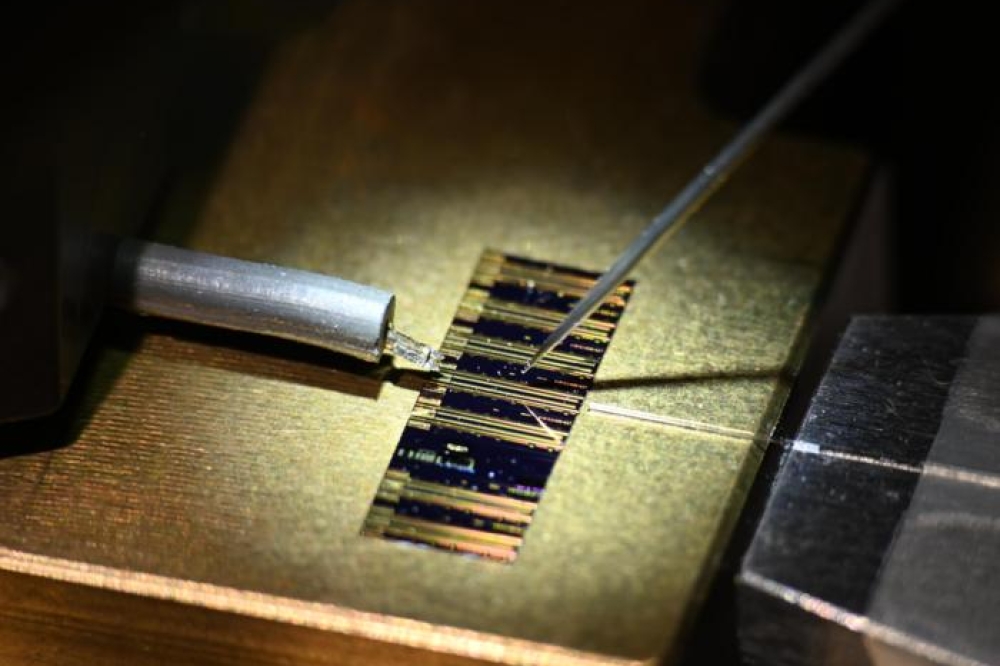Warwick University opens £10 million High Tech Cleanroom
The University of Warwick will formally open its new “Science City Cleanroom for Energy Efficient Semiconductors” on Friday 2nd of July.

Technical staff in the new cleanroom researching power electronics
The facility is part of a £10.6 million project funded by Advantage West Midlands (AWM) and the European Regional Development Fund (ERDF) as part of the Birmingham Science City Energy Efficiency & Demand project.
The University of Warwick is leading the project in collaboration with the University of Birmingham as part of the Science City Research Alliance program. Some £9.5m has been invested in leading-edge equipment which will be accessible to any interested users from both local industry and academia.

The University of Warwick’s Phil Mawby will head the new facility. He will mark the event by presenting the first semiconductor wafer to be processed by the new facility to Chris Snowden, President of the Institution of Engineering and Technology, who will give the keynote address at the opening of the new lab.

Phil Mawby, University of Warwick
Also present at the event will be representatives from high tech companies in the Midlands who hope to work with the University of Warwick to make use of the new facility including Converteam, the UK’s largest technology company in the renewable energy sector.
Mawby is one of the University of Warwick’s senior professors in the School of Engineering at Warwick who has an international reputation for research excellence in power electronics. He said, “The new Science City Cleanroom builds on the Warwick Institute for Sustainable Energy and Resources (WISER), which links together energy research at Warwick, including the fundamental sciences, economics, business and social studies and now creates new links with other local universities and high tech business.”
He added, “Power electronics is the technology used to manage electrical energy efficiently. Almost every piece of modern electrical equipment uses power electronics. It is a generic technology with a vast array of applications, from the very low power levels found in mobile phones to the very high levels used in power distribution grids. Technological advances in this area have a significant potential to reduce energy consumption, even at a time when the global demand is growing rapidly. Japan judges power electronics to be one of the three most important technologies that are necessary for building a low carbon future. This award will greatly assist our research in these areas.
The opening will take place on the Morning of Friday 2nd July 2010 in the International Digital laboratory. The wafer presentation will take place at 12pm.































